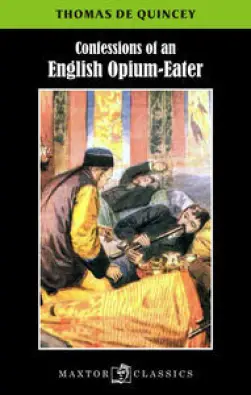
Haz clic en la imagen para ampliarla
CONFESSIONS OF AN ENGLISH OPIUM-EATER
TOMAS DE QUINCEY
MAXTOR
9788490019450
No disponible, contactar
El contacto de seguridad todavía no está disponible. Si necesitan esta información solicítenla mediante este enlace
Este artículo no tiene advertencias de seguridad. Si tienen alguna duda al respecto consulten al contacto de seguridad.




